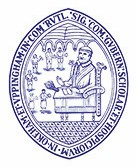
BACK in the dawn of rugby history Uppingham played their own unique hybrid version of the game – with an oval ball – that incorporated elements of both rugby as we now know it and football. There was certainly an emphasis on dribbling and kicking skills at Uppingham and that rather set them apart from most “rugby playing” schools until July 1889 when the school formally adopted the laws of Rugby Union Football.
Despite all this a number of early players, schooled initially under Uppingham Laws, made an early impression nationally with their first cap being Edward Turner who played for the England XX (20-a-side) against their Ireland counterparts in 1875. In quick succession there were England caps for his brother George Turner, Ellis Markendale, John Schofield, Charles Wilson, and Alan Rotherham. Wilson also played football for England.
Meanwhile George Robb and Robert Mackenzie both played for Scotland after leaving Uppingham, while before the end of the century the school could boast over 30 Oxbridge Blues.
Of those early alumni, Rotherham was probably the most distinguished and influential player, a real trailblazer for the game generally. After skippering the school’s cricket team and starring for the Uppingham “football” team he went up to Balliol College Oxford to study jurisprudence and immediately broke into the Oxford XV as a freshman.
At the time Oxford captain Harry Vassell was revolutionising the use of backs behind a dominant scrum the quick witted, safe-catching, clever-kicking Rotherham was tailor-made.
In effect Rotherham became the first fly-half the game had seen with his Oxford forwards looking to transfer the ball out to him and his backs as a first option rather, as had been the norm, keep it endlessly amongst themselves.
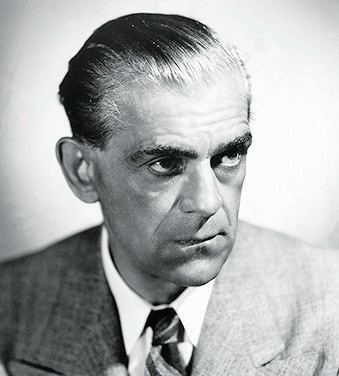
After winning three Blues at Oxford, Rotherham – the son of a Coventry watchmaker – went on to play for Coventry and made 12 appearances for England between 1882 and 1887 during which time they won two Triple Crowns and shared another Championship with Scotland. He lost just once, to Ireland in 1887.
More caps and titles would probably have followed but for two seasons England were in dispute with the newly-formed International Rugby Board and did not participate in the Championship.
When England returned in 1888 Rotherham was suddenly surplus to requirements and quit his legal career to become the company secretary of brewers Watney’s but he suffered many demons and took his own life with a pistol on August 30, 1898 aged 36.
After his death Rotherham was hailed as the inventor of the passing game and although there are some, particularly in Scotland where Loretto were known for their passing game, who dispute this, Rotherham’s Oxford and England teams were certainly the first to unleash such tactics at the highest level. He was inaugurated into the IRB Hall of Fame in 2011.
Rotherham wasn’t the only member of his wider family to play for England, his cousin Arthur was also a stand out at Uppingham and won two Blues at Cambridge in 1890 and 1891 before being selected for the British Isles on their 1891 tour of South Africa. There he played in the winning Tests at Port Elizabeth and Cape Town and being a specialist kicker, he finished as the top points scorer on tour. He had to wait until 1896, however, to win the first of his five England caps.
Also starring on that 1891 Lions tour was another Uppingham old boy, Jonny Hammond, although he did also spend some time at Tonbridge. A rumbustious forward, Hammond also captained the 1896 Lions although he was injured for much of that tour. Also starring on that tour was yet another Uppingham fly-half – Sydney Pyman Bell – who had blazed a trail at Cambridge and played in three of the four Tests in South Africa but, curiously, was never required by England.
Hammond later managed the 1903 tour party. It was Hammond who was largely responsible for persuading the Home Unions to invite the 1906 Springboks for their first overseas tour to Britain and Ireland.
A contemporary of Arthur Rotherham at Uppingham was Gregor MacGregor who also went up to Cambridge after blazing a trail at school. MacGregor won 13 caps for Scotland and, as a wicketkeeper batsman, represented England in eight Tests. He
“Alan Rotherham became the first fly-half the game had seen” also captained Middlesex for ten seasons.
A golden era for Uppingham rugby continued with the prodigiously gifted Harry Alexander who won Blues in rugby, cricket and athletics at Oxford before winning seven England caps between 1900 and 1902. After coming down from Oxford he dabbled in school mastering but he gave that up to become a professional singer while he also published an early rugby coaching manual: How to Play Rugby Football. The Theory and Practice of the game. Alexander was killed at the Battle of Loos on October 17, 1915 while serving in the Grenadier Guards.
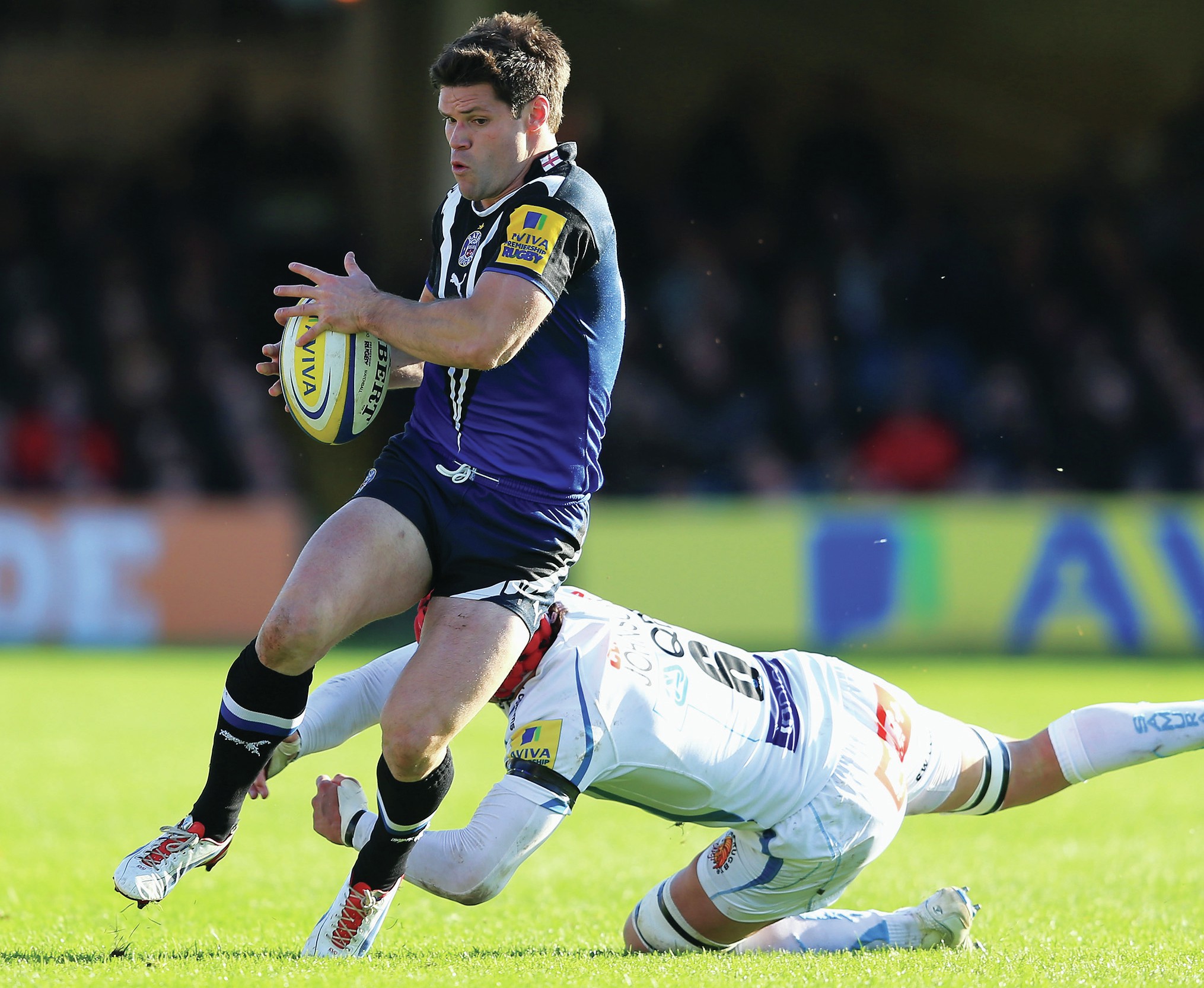
A less distinguished but enthusiastic rugby player at Uppingham during this time was William Henry Pratt – who morphed into Frankenstein monster actor Boris Karloff. Pratt enjoyed a lifelong affection for the game and is credited with founding the Southern Californian Rugby Union on the West coast in 1937.
It all happened in rather strange circumstances. The Universities and clubs of southern California – then loosely combined as an Association – wanted to host a high profile tour by a combined Oxford and Cambridge side. Pratt – Karloff – happily stepped forward and did the rounds of his Hollywood mates in the British ex-pat community to raise the princely sum of $10,000 which underwrote the tour in total.
At which point the Association’s treasurer made off with the money. The tour had to be cancelled but Pratt repaid the money out of his own pocket and suggested that in future the Association be properly reconstituted as a Union. Those concerned took that on board and in 1937 the Southern California Union was formed with Boris Karloff as its first president.
The twenties and thirties spawned some distinctly useful players at Uppingham headed up by Douglas Kendrew, later to become Major General Sir Douglas Kendrew who, during World War 2 and then the Korean War, won the DSO and three bars making him one of the most decorated soldiers in recent times.
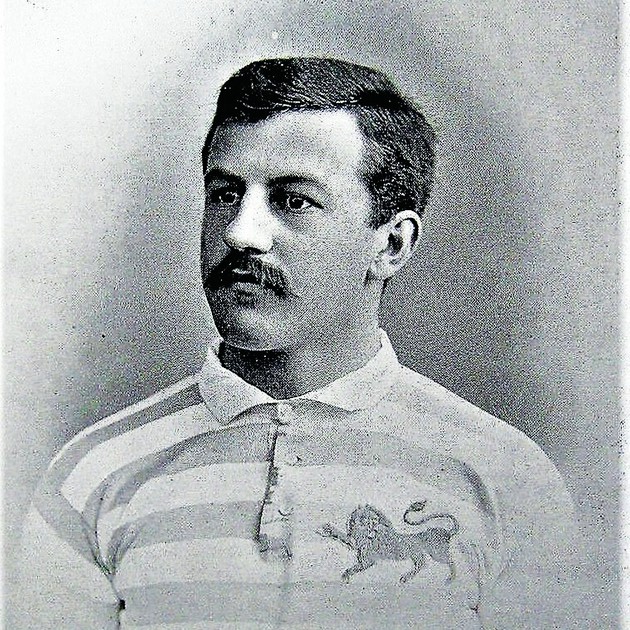
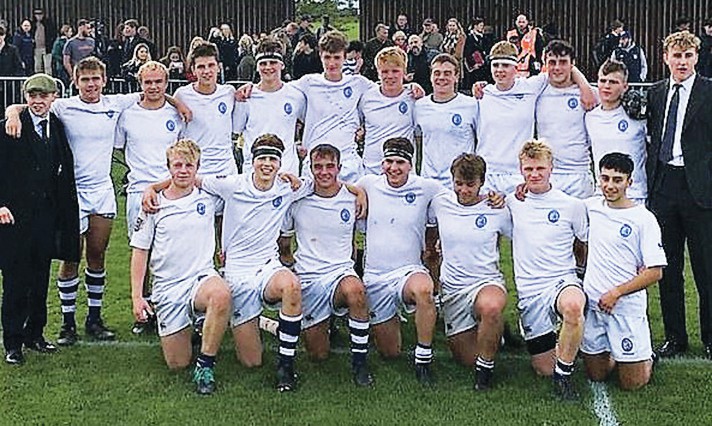
Kendrew was a rugged and relentless prop who toured New Zealand and Australia with the Lions in 1930 without playing in a Test. On his return he won the first of ten England caps before his military career took over.
Later in life he served as Governor General of Western Australia for ten years.
The remarkable Brian Pope, meanwhile, played scrum-half in three England games in 1931 at the age of 20. Pope, who uniquely skippered Uppingham’s rugby, cricket, and hockey sides, was the oldest living England player at the time of his death in 2011 when he had just reached his century.
Pope was also a former president of Royal St George’s Golf club. He claimed his first hole in one in 1928 at Walton Heath, when he was just 17, and his second in 2004 at the famous par-3 sixth hole at Royal St George’s known as The Maiden when he was an extremely active 92.
An Uppingham contemporary of Pope was Dermot Milman or Sir Dermot Milman 8th Baronet to give him his full title, who took a little longer to find his feet at senior level before making his England debut at full-back in 1937 and then appearing in all three games in the Home Nations championship the following season.
The War and immediate post war period produced another mini golden era which was rewarded with two notable wins at the Rosslyn Park Sevens. In 1946 they defeated old rivals Oundle 8-0 in the Open final and then in 1954 they beat Rydal 10-3 to claim their second and thus far final title.The key figure in the 1946 success was unquestionably Brain Boobbyer, a high-quality centre with all the skills who was to make a splash on and off the field, more of which on the right.
Some years later Uppingham produced another fine England centre in Dan Hipkiss who captained the First XV before moving onto Leicester. Injury problems saw him come in and out of the England team but his 13 England caps did include appearances, as a replacement, in the 2007 World Cup semi-final and final.
More recently it would be fair to say that Uppingham have not always aspired to greatness on the rugby pitch, they are a school that looks to be competitive at a wide range of sports with no particular specialisation but there was a distinct upturn in fortunes with the arrival of former Scotland centre Nick de Luca as the director of rugby.
The last completed campaign before Covid – the 2019-20 season – was much more encouraging with nine wins out of 11 on their strong fixture list and a quarter-final place in the NatWest Cup, where they lost 27-7 to an excellent Hampton side. Close links with Leicester and Northampton have been renewed with the schools better players involved with those Premiership Academies.
Just this summer De Luca has accepted the role of director of sport at Uppingham with another former Scotland player, lock Andrew Hall, taking over as DoR. Hall arrives fresh from a successful spell as coach and DoR of Hong Kong and once the rugby world gets back to normality a big drive is planned on the rugby front.

























Pingback: Blackberry Dream for sale near me
Pingback: my latest blog post